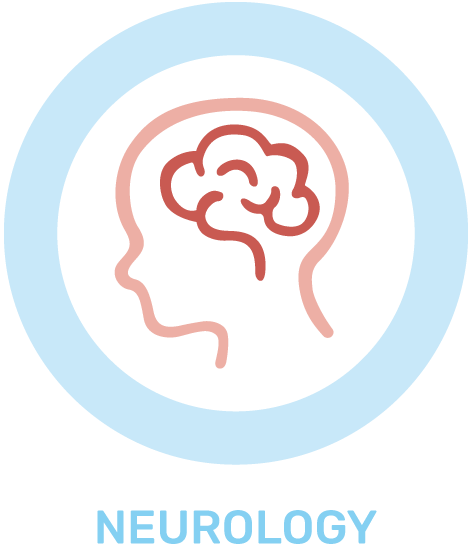

EPIDASD, 599 GENES
EPIDASD stands for: Epilepsy - Intellectual Disability - Autism Spectrum Disorder. This panel is relevant to autism and autism spectrum disorders with and without epilepsy as well as mental retardation, intellectual disability and combinations thereof. The panel contains all genes from Amplexa Genetics' other neurological tests (Childhood Epilepsy, Progressive Myoclonic Epilepsy and Brain Malformation).The panel is evaluated and updated frequently. The current version contains 599 genes.

 HILDHOOD EPILEPSY, 110 GENES
HILDHOOD EPILEPSY, 110 GENESThe Childhood Epilepsy Panel is relevant in cases where epilepsy is the primary symptom.25% of epilepsy cases have their debut in childhood, especially early childhood. The Childhood Epilepsy Panel includes more that 100 genes involved in the development of epilepsy with early onset, epileptic encephalopathy, or developmental epileptic encephalopathy.
The panel is evaluated and updated frequently. The current version contains 110 genes.


FOCAL CORTICAL DYSPLASIA, 21 GENES
Focal epilepsy may be treated with medication, and occasionally with diet, nerve stimulation or surgery. Especially if the condition is due to a scar or other lesion in the brain. The panel consists of 17 genes previously described as being involved in the development of focal epilepsy due cortical dysplasia. In addition, the panel contains 4 new candidate genes.The panel is evaluated and updated frequently. The current version contains 21 genes.


BRAIN MALFORMATION, 821 GENES
Brain malformation is a common term for conditions in which the brain has not formed properly during pregnancy. Most of these problems in brain structure are associated with neurological and developmental problems. Amplexa Genetics performs genetic tests to establish the cause, etiology, and mechanism of the disease, and thereby allow a more targeted treatment.
The current panel is updated and consists of 821 genes which are associated with brain malformations.


FRAGILE X MENTAL RETARDATION 1 ANALYSIS, (FMR1)
Fragile X syndrome is a trinucleotide-repeat disorder caused by the expansion of CGG triplet repeat in the FMR1 (fragile X mental retardation 1) gene. The disease is characterized by developmental problems including learning disabilities, communication problems, social interactions, and cognitive impairment.
Amplexa Genetics performs genetic testing for FMR1 gene mutation in women who like to undergo a pregnancy with a sperm donor.

